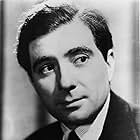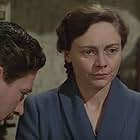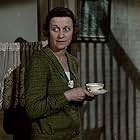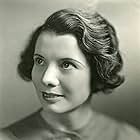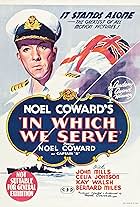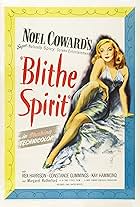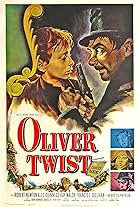IMDb RATING
7.3/10
4.2K
YOUR RATING
Just after World War I, the Gibbons family moves to a nice house in the suburbs. They live an ordinary life throughout the years, but everything changes when World War II breaks out.Just after World War I, the Gibbons family moves to a nice house in the suburbs. They live an ordinary life throughout the years, but everything changes when World War II breaks out.Just after World War I, the Gibbons family moves to a nice house in the suburbs. They live an ordinary life throughout the years, but everything changes when World War II breaks out.
- Awards
- 1 win
Robin Burns
- Man in Crowd
- (uncredited)
Mabel Etherington
- Lady in Crowd
- (uncredited)
Dan Lester
- Man in Crowd
- (uncredited)
Storyline
Did you know
- TriviaThe voice of the uncredited opening narrator is that of Laurence Olivier.
- GoofsFrank is shown reading a copy of the 16 September 1930 edition of the Daily Mirror with the headline story about the elections in Germany held on 14 September where the Nazi Party increased their seats in the Reichstag from 12 to 107. He then goes to the back yard to help shake out the tablecloth, but the cherry tree there is still in full bloom, months after the blossoms should have disappeared.
- Quotes
Frank Gibbons: She didn't pass on, pass over, or pass out! She died!
- Crazy creditsOpening credits prologue: This is the story of a London family from 1919 to 1939.
- ConnectionsFeatured in Jonathan Ross' Must-Watch Films: Crime Films (2023)
- SoundtracksRule Britannia
(uncredited)
Lyrics by James Thomson
Music by Thomas Augustine Arne
Sung by Robert Newton (Frank) and Stanley Holloway (Bob) coming home after their reunion
Featured review
If Noel Coward WAS a queen then his tiara was studded with both emeralds and ironies and were the Man In The Street asked to design a coat of arms for Coward it would surely feature a silk, polka dot dressing gown with an amber cigarette holder a destra and a white grand piano rampant. Not a bad image for someone born in Teddington and raised in Clapham, both spiritually if not geographically light years away from the pavements of Mayfair sprinkled lightly with the stardust of his talent and neighborhoods where any extraneous avian noise would more likely be a 'sparrer' than a nightingale. Say the words 'Noel Coward song' and the phrase triggers memories of brittle, witty and intricate rhymes melded to staccato melodies (Mad Dogs and Englishmen, The Stately Homes Of England, Don't Put Your Daughter On The Stage, Mrs. Worthington)only a full minim later do we recall the soaring melodies and simple words of I'll Follow My Secret Heart, I'll See You Again, Someday I'll Find You. One of the great ironies of Coward's life was that he was a super-Patriot with a genuine and abiding love of England yet the crippling tax system of the time (that allowed him to keep the sterling equivalent of five cents in every dollar he earned) forced him to choose tax exile and establish homes in Jamaica and Switzerland, supreme irony indeed that the Establishment felt insufficient pride in the man whose hymn to the spirit of the Englishman, 'London Pride' had helped see us through the dark days of World War Two, to make an exception for him. Ironic, too, that his finest play, 'This Happy Breed', rooted deeply in the down-to-earth soil of Clapham Common should so often be overlooked in favor of the undeniable brilliance of the comedies. 'Finest', of course, does not always mean 'most famous', 'best-loved' etc, and Coward has many contenders in those stakes, Blithe Spirit, Hay Fever, Present Laughter and, let's face it, 'Private Lives', which even as I write is still playing in Paris in a bizarre translation by one Erich Emmanuel-Schmidt that transforms what is essentially a duet with two thankless supporting roles into a full-blown quartet. This Happy Breed is being revived this year, too, in fact I will be taking my place in the audience in just a few hours from now. Not, alas, in a beautiful theatre like Edouard VII but a much more prosaic Community Theatre in North London. This was Coward's second stab at a celebration of his native land, he had done it on a much grander scale a decade earlier in Cavalcade but that time around he had opted for the upstairs/downstairs aspect and given us a panorama stretching from the Boer War to the end of the twenties - he had also, in passing, given us one of his best ever songs, 20th Century Blues, but this time he was content to concentrate on Mr and Mrs Joe Soap in the shape of Frank and Ethel Gibbons, their three children, Vi, Reg and Queenie, Frank's mother-in-law, Mrs. Flint and Ethel's sister, Sylvia. I'm somewhat startled that in reading two resume's and one review in these pages no one mentioned the obvious: EVERYONE has a family with some, if not all, of those elements; what Coward has done, and done superbly, like the consummate craftsman he was, is to give us a metaphor for England. During the course of the action - approximately one decade from 1919 to 1939 - The Gibbons endure highs and lows, births, marriages, and, yes, deaths. We should not lose sight of the fact that Coward wrote this on the eve of World War II and his clear intention was to buck up English spirits and remind us that we can take anything that fate, life, or Adolf Shickelgreuber can throw at us. The performances throughout are magnificant, Robert Newton is a revelation in the role Coward wrote for himself, as is Celia Johnson in a complete volte-face of her Laura in Coward's own 'Brief Encounter' for which she will be remembered as long as movies are shown. But they are just the two best-known players in an exceptional cast; John Mills and Kay Walsh were, by then, emerging as major players but we must not overlook the Mrs Flint of Amy Veness, the snivelling Sylvia of Alison Leggatt, the quiet dependability of Eileen Erskine's Vi nor the two other juveniles, John Blyth as Reg and Guy Verney as Sam Leadbitter, who comes to lead Reg astray and stays to settle down with Vi. This is a superb portrait of a family who is also a nation, muddling through the ups and downs of existence. 10/10
- writers_reign
- Jul 15, 2004
- Permalink
- How long is This Happy Breed?Powered by Alexa
Details
- Release date
- Country of origin
- Language
- Also known as
- Srecna porodica
- Filming locations
- Alderbrook Road, London, Greater London, England, UK(exteriors of family house near corner with Bellamy St. - still standing in 2022)
- Production companies
- See more company credits at IMDbPro
Box office
- Budget
- £200,000 (estimated)
- Gross worldwide
- $158
- Runtime1 hour 55 minutes
- Color
- Aspect ratio
- 1.37 : 1
Contribute to this page
Suggest an edit or add missing content








